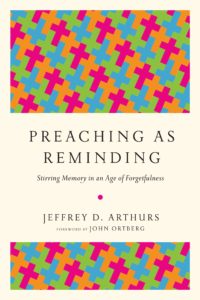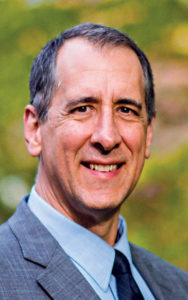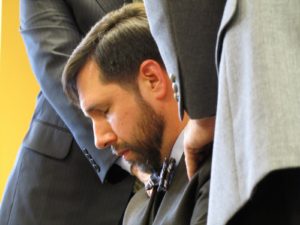Dr. Jeffrey Arthurs is one of my favorite people. Michele and I have known Jeff since the early days of the Evangelical Homiletics Society. He is a brilliant homiletician, professor, and extremely capable preacher. Along with his professorial duties at Gordon-Conwell Theological Seminary, he’s also a long-term interim pastor so he’s preaching every weekend. Enjoy his contribution and may our Lord continue to receive glory in the church and in Christ Jesus (Ephesians 3:21) because of our thoughts about what preachers do. Here’s Jeffrey:
“You know how pastors say the same things again and again? For example, God loves sinners; we are a family; and Jesus is coming back? In my 2017 book, Preaching As Reminding (IVP), I argue that this is not only inevitable for expository preachers, it is also beneficial for the listeners. Why? Because we need reminders. We forget. Prone to wander, Lord, I feel it! C. S. Lewis put it this way:
We have to be continually reminded of what we believe. Neither this belief [in Christian doctrine] nor any other will automatically remain alive in the mind. It must be fed. And as a matter of fact, if you examined a hundred people who had lost their faith in Christianity, I wonder how many of them would turn out to have been reasoned out of it by honest argument? Do not most people simply drift away?
Mere Christianity, 123-124.
So, preachers take their stance not only as teachers of new concepts, persuaders, and exhorters, but also as “the Lord’s remembrancers” That is a phrase from the court of Great Britain—the Queen’s (or King’s) remembrancer was a record keeper of official business who reminded noblemen of their duties. We are the “Lord’s remembrancers” who remind believers of God’s great covenant of grace and our duties to love and fear him in return.
So, the next time your text gives you a well-trodden truth, don’t be afraid to tell the old, old story one more time. Let fidelity, not novelty, be your motto.










